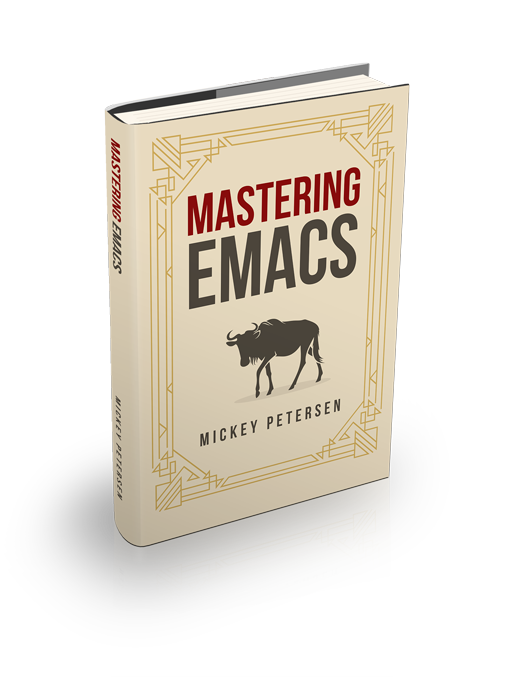I’ve previously talked about using Hippie Expand to expand text. It’s great; if you’ve not used it, you should give it a try. But it’s just one of many different ways of expanding the text at point and turning it into something else.
The most basic of these systems in Emacs is abbrev. Abbrev is, as its name may slyly allude to, intended for abbreviations or unconditional text replacements. It works as you type: you don’t need to do anything to trigger it, provided you’ve told abbrev to replace one word with another, either globally or locally to a particular major mode. Because abbrev silently expands stuff with no fanfare, that makes it great for auto-corrections.
Many moons ago, I borrowed Wikipedia’s list of most common misspellings and turned them into abbrev entries. It’s a total game changer. And the best thing about it is that it silently replaces the matches. Sure, it’s no replacement for a spell checker, but it’s good enough to catch a lot of common keyboard fumbles.
There are two ways of creating abbrev entries, and two ways of defining where they trigger. Abbrev entries trigger either in the major mode you define the abbrev in, or globally in all major modes.
In order to add abbrev entries you need to decide if you want to do it the inverted way – where you place point at the end of the word you want to replace – or the other way around.
| Key Bind | Purpose |
C-x a g | Define an abbrev globally |
C-x a l | Define an abbrev locally |
C-x a i g | Define an inverted abbrev globally |
C-x a i l | Define an inverted abbrev locally |
You also need to enable it, as it’s not by default:
(setq-default abbrev-mode t)I prefer the inverted approach as I’m more likely to catch the mistake in the buffer and then use C-x a i g to enter the correct word. Emacs commits the new abbrev and fixes your word at point. This workflow works well for fix-as-you-go typos.
If you find yourself wanting to prevent abbrev from expanding the word at point, you can insert a literal space with C-q SPC. That circumvents the abbrev trigger mechanism that one time.
Emacs will ask you when you exit if you want to save your abbrevs. But you can call M-x abbrev-edit-save-buffer to explicitly save it, and M-x edit-abbrevs to open the file directly for editing. I recommend you M-x customize-group abbrev as there’s a number of interesting settings you can tweak, like the filename for the abbrevs, and whether you want it to handle word casing.
As it’s designed for whole-word expansions, abbrev is therefore not able to expand your abbrev entries if they’re part of a larger word. There is a way to do this – using M-' as a marker to indicate that abbrev should expand anyway – but I find it more trouble than it’s worth.
Let’s quickly go over one (of many) ways you can import Wikipedia’s word list.
Importing the Common Misspellings Word List
As the link above shows, the word list looks like this:
...
countrie's->countries, countries', country's
...
manoeuverability->maneuverability
manouver->maneuver, manoeuvre
...As you can see, the word list may offer up alternatives. Some of them with grammatical inflections or regional spelling variations.
If you don’t want to manually sift through which ones you prefer, I recommend you just delete the ones with multiple matches:
C-x hto mark the whole buffer.M-x flush-lines RET , RETto flush anything with a,on the line.
And… done.
To load the remaining entries into your abbrev table, I would recommend a keyboard macro:
- Place point at the beginning of the buffer with
M-<. F3to start macro recording.- Search for
->with isearch (C-s) and pressRETat the first match. - Your point is now after
->, so<backspace>twice to delete it. - Type
C-kto kill to the end of the line. (This obviously needs tweaking if you havekill-whole-lineset… but this is yet another reason why you should never do that.) - Type
C-x a i gto correct the preceding word. At the prompt, pressC-yto yank the previously-killed word into the buffer. PressRETto accept. - Stop macro recording with
F4. - Type
C-0 C-x eto execute the macro forever, until it reaches the end of the buffer. It might take 5-10 seconds.
You’re done. Don’t forget to save the changes and enable M-x abbrev-mode to test that it works.


